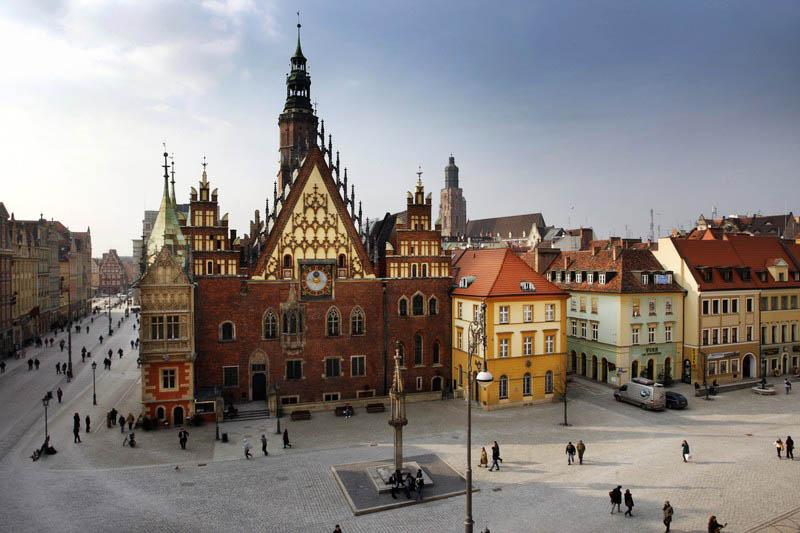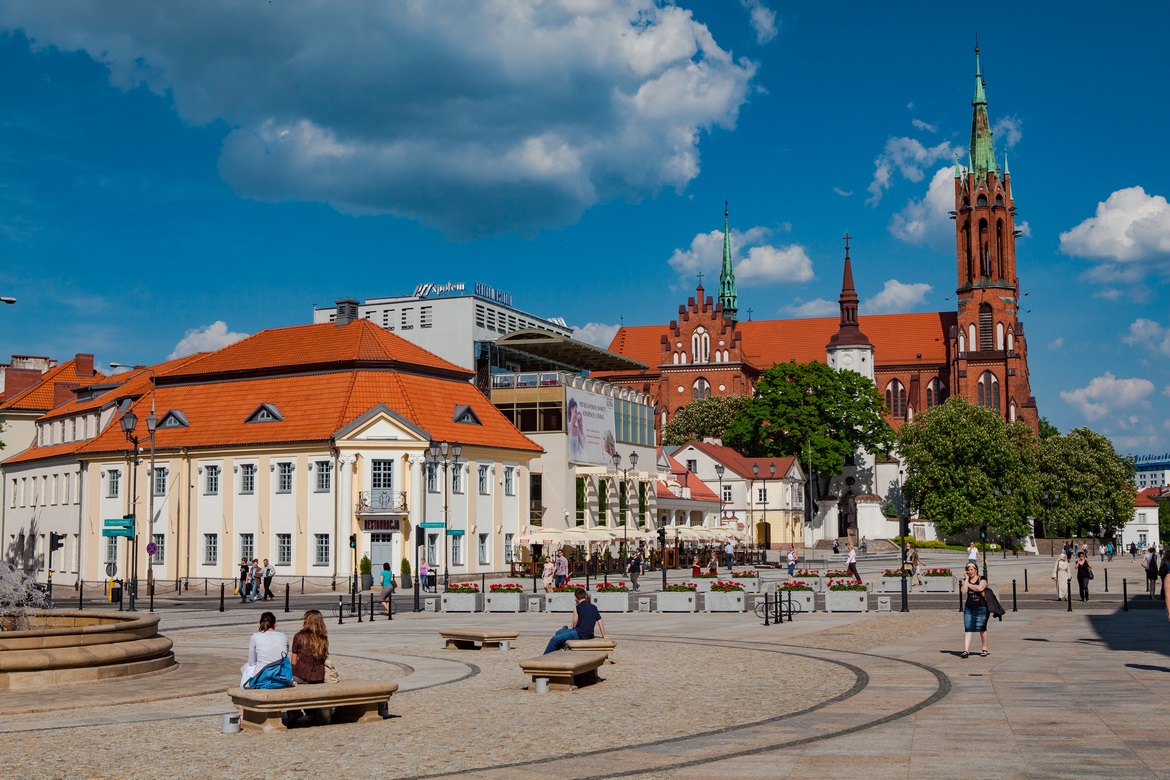
After the key period of 1989, a renaissance of Jewish culture began in Poland. Today its funds can be found in many Polish cities: in some places it has existed since ancient times, and in others it has emerged recently, but is looking forward with confidence.
Kazimierz Dolny
Kazimierz Dolny is a charming small town surrounded by hills and located on the banks of the Vistula, where the ruins of an ancient castle stretch above the town. At the end of the 19th and beginning of the 20th centuries, Jews made up almost half of the population of this place. Nowadays, as in the period between the world wars, Kazimierz Dolny is popular among summer holidaymakers from Warsaw and Lublin. The city preserves and takes pride in its Jewish heritage, highlighted by the annual Pardes Festival, celebrating the city’s multicultural history. Tourists are recommended to visit the famous restaurant “U Fryzjera”, where you can try Jewish cuisine.
Krakow/Kazimierz
We don’t want to confuse you, but it’s worth knowing that there is another Kazimierz in Poland – this is the magnificent former Jewish quarter in Krakow. Kazimierz in Krakow is known for its rich history and is considered one of the most distinctive Jewish quarters in the country. The area is home to 7 synagogues and numerous Jewish restaurants. It also hosts the renowned Jewish Culture Festival every year, which attracts tens of thousands of visitors from around the world. The culmination of the festival is the final concert “Shalom on Shirokaya”, where Jewish music from different parts of the world is heard for seven hours.
Bialystok
Bialystok is located in northeastern Poland, close to the border with Belarus and Lithuania. Previously, Poles, Jews and representatives of other nationalities coexisted peacefully in this city. Białystok has historic Jewish buildings, including a synagogue, the Trilling Palace and the house of Ludwik Zamenhof, known as the creator of the Esperanto language. Every year in Bialystok the festival of Jewish culture “Zakhor – Color and Sound” is held, which offers a rich program of concerts, master classes and other cultural events.

Tykocin
Tykocin is a small town located just half an hour from the center of Bialystok, which was once home to a large Jewish community. Thanks to the preserved ancient city buildings, Tykocin provides a unique opportunity to see what a typical pre-war shtetl looked like. The city has preserved the Great Synagogue with magnificent wall paintings. The synagogue tower houses displays including the rabbi’s room and the table traditionally set for the Pesach Seder, the ritual meal of the Jewish Passover.
Wroclaw/Quarter of Four Religions
Wroclaw offers a unique location known as the Quarter of Four Religions, where shrines of four different faiths, including a synagogue, are located within a short distance of each other. It is here, as well as in the neighboring Jewish community center, that the key events of the annual SIMCHA festival of Jewish culture take place. The festival program includes concerts, film screenings and lectures, covering the summer period.
Lodz
In the late 19th and early 20th centuries, Lodz, a city with a thriving textile industry, became home to Poles, Jews, Russians and Germans who lived peacefully next to each other. The multicultural richness of Łódź is celebrated during the annual Łódź Four Cultures Festival held in the spring. The festival includes concerts, street performances and debates that celebrate and explore the city’s diverse heritage.

Warsaw
When talking about the revival of Jewish culture in Poland, it is impossible not to mention Warsaw. This city, which was a center of Jewish culture before the war, has recently been actively seeking to renew its Jewish heritage and open a new chapter in the history of its Jewish community.
The first point of your trip should be Grzybowska Square. Here, in an area that was once the Jewish Quarter, the Warsaw Singer Festival is held every summer. Throughout the week, the square comes alive with numerous events dedicated to Jewish culture. Musical aficionados can enjoy a cantorial concert at the nearby synagogue or attend one of the musical performances at the Pardon To Tu jazz club, also located on Grzybowska Square. The festival program includes lectures, master classes and events for children, and the Jewish Theater, which was previously located in the same square, actively participates in it.
The heart of Jewish life in Warsaw is the Jewish Community Center, located on Chmielna Street in the center of the Polish capital. The center offers a warm and friendly atmosphere for immersion in Jewish culture. Here you can take part in a Hanukkah cooking class or develop your creative skills under the guidance of an experienced mentor among like-minded people passionate about Jewish art. The Center also serves a Jewish-Polish breakfast every Sunday, including bagels, herring and hummus.
Of course, you shouldn’t leave Warsaw without visiting the POLIN Museum of the History of Polish Jews, which opened in 2013. This state-of-the-art museum with interactive exhibits introduces visitors to the thousand-year history of Jews in Poland.
